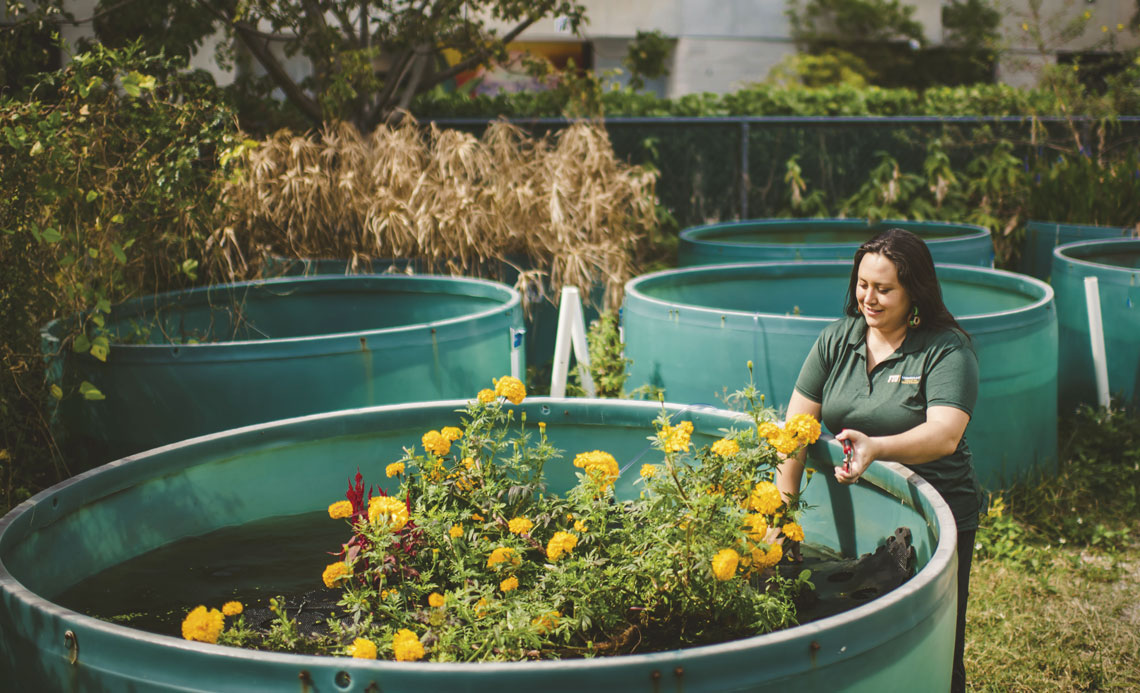
Jazmin Locke-Rodriguez among tanks being cleaned by carnationsMargi Rentis / FIU / Flickr
Flowers grown on polyethylene foam mats helped clean tanks of water polluted by organic material in an experiment carried out at Florida International University (FIU) in Miami, USA. Two soil experts from FIU, Jazmin Locke-Rodriguez and Krishnaswamy Jayachandran, created floating rafts that were 1.3 centimeters thick, 1.2 meters (m) wide, and 1.8 m long, with holes containing two species of zinnia (Zinnia spp.), two varieties of sunflower (Helianthus annuus), and African carnations (Tagetes erecta). The plants were cultivated in five 2,300-liter tanks of water for 12 weeks, designed to simulate nearby polluted rivers. Only the carnations survived — probably because of their unique feature of growing extra roots from their stems. The plants extracted 52% more phosphorus and 36% more nitrogen than traditional treatments and produced an average of 65 commercial-quality flowers per square meter. Based on the results, Locke-Rodriguez continued the tests with the carnations on mats in waterways around Miami (Environmental Advances, October 2023; FIU Newsletter, February 10; The Conversation, February 13).
Republish